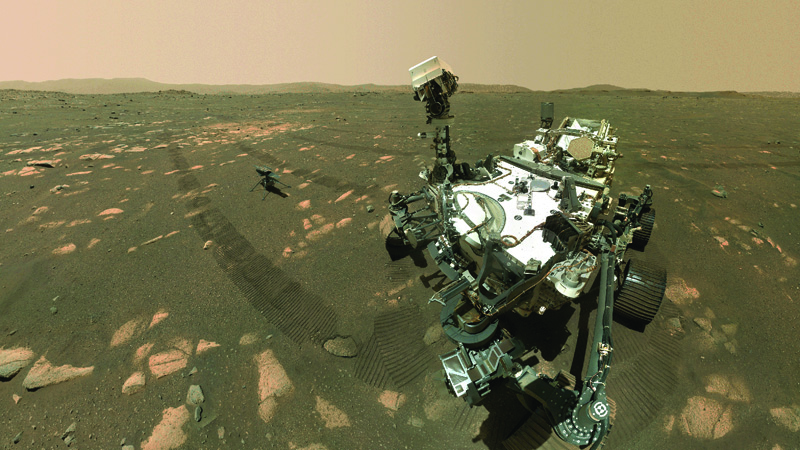The Music Man
By: Kristin Baird Rattini | Categories: Alumni Achievements
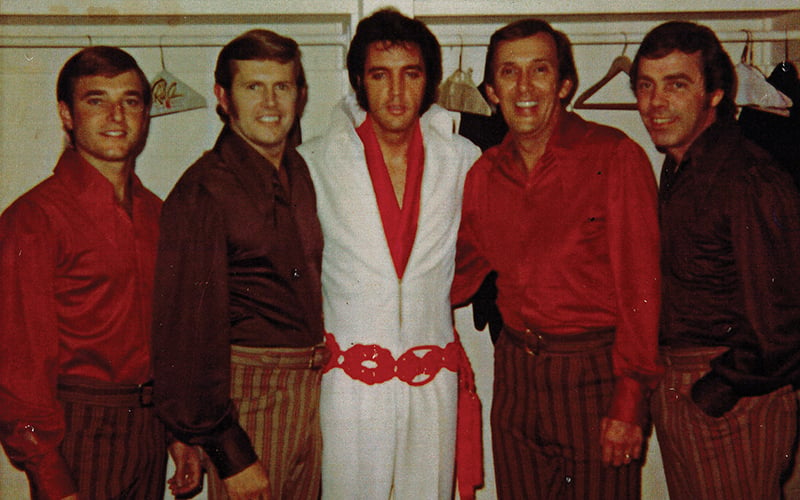
That “something” was the start of Middlebrooks’ first band, The Collegians, and the launch
of his seven-decade musical career. Since that pivotal improv performance, the talented singer, songwriter, and pianist has toured with Elvis Presley, teamed up with artists from Glen Campbell to Liberace, hit the rock charts with the now-Halloween classic “Spooky,” written more than 300 songs, and woven a rich tapestry of cherished musical memories.
Talent Meets Opportunity
Middlebrooks’ musical roots already ran deep by the time he arrived at Georgia Tech on a textile engineering co-op scholarship from Thomaston Mills, where his father worked. He started taking classical piano lessons at age 6, recorded his first song at age 8, and performed with his family’s musical group for community groups and events. He sang in his high school choir and formed a barbershop quartet that won the state championship.
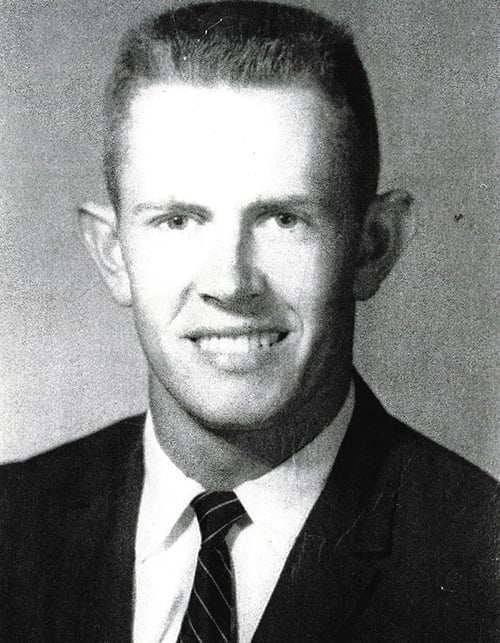
“Playing on the weekends was the highlight of the week for Harry and most of us in the band,” Rich says. Not only was it a relief from the stress of classes but a joy to play with fellow musicians of such high caliber. “No one, I mean no one, could play piano
better than Harry when it came to rock ’n’ roll,” Rich says. “He mastered the genre.”
Middlebrooks caught the attention of Bill Lowery, a music publisher known as “Mr. Atlanta Music,” who became his manager. Soon after graduation, Middlebrooks and his new band Harry M. and the Marvels (which included Rich) recorded a song with Lowery for ABC-Paramount Records to go with a hot new dance trend, “The U-T,” which stands for the University of Tennessee, where the dance move originated.
The very next day, as he drove home to Thomaston, Middlebrooks heard the song played on WQXI-FM. “I had never heard myself on the radio,” he says. “My adrenaline was pumping so hard I had to stop the car and listen.”
“The U-T” reigned as the No. 1–requested song on WQXI-FM for five weeks. It received airplay as far away as Baltimore, where Middlebrooks performed the song on The Buddy Deane Show, the teen TV dance show that inspired the movie and musical Hairspray.
The Making of a Halloween Hit
After two years of Army service as a lieutenant—including six months of touring with the branch’s Showmobile—Middlebrooks became a staple on the Atlanta club circuit. He connected with other musicians, including saxophonist Mike Shapiro (a.k.a. Mike Sharpe), and influential media executive Richard Dinsmore, vice president of Desilu Sales.
After a club show in Atlanta one night in 1965, Middlebrooks and Sharpe started riffing on the classic George Gershwin tune “Summertime.” “We knew we had something special,” Middlebrooks recalls. Sharpe picked a name for their new instrumental number at random: “Spooky.” When they recorded it, they added in strange high voices for a spookier feel, and the Baldwin organ gave the song its signature sound.
The instrumental received nationwide airplay, peaking at No. 57 on the U.S. charts in January 1966. A year later, the band Classics IV added lyrics and their rendition reached No. 3 on the Billboard 100. “Mike and I were so excited, because we’d thought our little song was dead,” Middlebrooks says. “They added in one line that mentions Halloween, and that plus the title has made it a classic Halloween song that appears on Halloween compilation albums.”
The song has since been covered by artists ranging from Andy Williams to the Drifters to Dusty Springfield, whose version has sold more than 60,000 copies and featured prominently in the film Lock, Stock and Two Smoking Barrels.
In the meanwhile, Dinsmore helped Middlebrooks land a dream job: hosting his own variety show on KABC-TV in Los Angeles. The Middlebrooks Show debuted in October 1966. “Dick [Dinsmore] really believed in me like no one else,” Middlebrooks says. “I was ready for my moment.”
The 13 episodes featured such guest stars as Della Reese, Michele Lee, and José Feliciano. Soon after the show ended, Lawrence Welk invited Middlebrooks to sing on his national TV show twice. For one performance, he paid tribute to his roots with the song “Georgia.” Welk was impressed and asked him to join his ensemble. Middlebrooks had other plans.
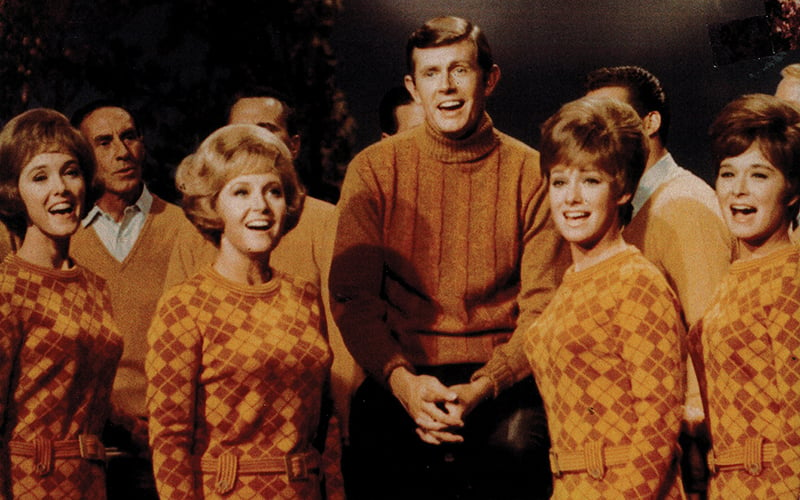
Singing Backup for the King
Middlebrooks recorded several songs for Reprise and Capitol Records and established himself on the club scene in Southern California, eventually singing at over 80 clubs. He became an in-demand session and backup singer for numerous artists, including Neil Diamond, Anne Murray, and Marty Robbins. He relished his seven-year run backing Glen Campbell for his Las Vegas and Lake Tahoe concerts. He recalls a special shoutout that Campbell gave him one evening. “Glen told the audience, ‘This guy is Harry Middlebrooks. He’s got a great voice. One night, I’m going to come out here and just move my lips and let him sing for me.’”
In fall 1970, Middlebrooks got a call from a longtime Atlanta friend: Felton Jarvis, Elvis Presley’s musical producer, asking if Middlebrooks and his quartet could be ready in about two weeks to open for and back Presley on his highly anticipated first tour in 10 years. “I was like, ‘Are you kidding me? Tell me what time to be there!’” Middlebrooks says.
He scrambled to arrange songs for his quartet, complete chord charts for the entire orchestra, and memorize Elvis’ set list. For the one-week tour, he crooned along with the King to such hits as “Suspicious Minds” and the nightly finale of “Can’t Help Falling in Love” before tens of thousands of fans.
“I spent every minute that I could with Elvis,” Middlebrooks says. “What gets lost in all the talk about Elvis was just how funny he was. His sense of humor was everywhere, and it made the tour a lot of fun.”
Keeping the Music Going
Middlebrooks has had fun expanding his repertoire beyond his singing performances over the decades. He landed more than a dozen roles in film and TV and scored music for several TV shows as well. He provided the voices for Shaker and Zeke, two characters in Walt Disney World’s Country Bear Jamboree beloved by generations of children. He recorded an album of comedy songs under the name Hank Roving and the Lint-heads, a nod to his Tech textile roots.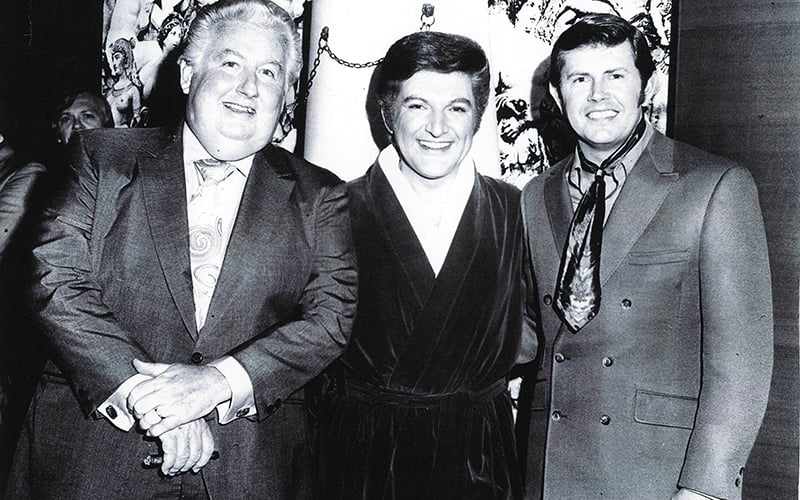
He has focused most on his songwriting in recent years. He has penned more than 300 tunes over the years, with some of his songs recorded by such artists as Liberace, Eddy Arnold, the Oak Ridge Boys, and Tom Jones.
“Somehow Harry worked his way throughout all the roadblocks, gauntlets, slick moves, and challenges over his long career to become what I consider a highly successful musician and songwriter,” Rich says.
One particular Middlebrooks tune best reflects his long musical career: “What Would I Do Without My Music,” with lyrics by Bruce Belland. Elvis was scheduled to record the song, but unfortunately he passed away before the session. The song has since been laid down by T.G. Sheppard, Roy Clark, and other artists and frequently picked up by choirs around the world, giving new voice to Middlebrooks’ music:


